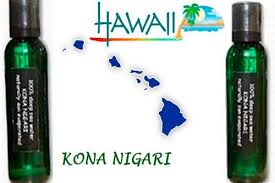Tapped in to a healthier New Year
By Sean Robinson @seanrobinsonUU
Could we all be falling out with our love affair for the latest designer water? It seems so, as savvy consumers make New Year resolutions to ditch the bottle for tap.
It is estimated that we Brits spend about £1.5 billion on bottled water each year. Experts say that we drink 33 litres of bottled water annually, whether ordinary mineral, fizzy, or “purified' tap water”.

A blogger on The Telegraph website, has set herself a challenge to save money and the planet, get through 2016 without buying or drinking bottle water, Anna Hart says: “I wanted a different kind of Dry January, one that would last all year and would really make a difference not only to me but also the planet.”
Anna reveals how in 2015 sales of bottled water overtook carbonated drinks and the top best-selling “soft drink”, after public health campaigns raised awareness of the high sugar and additives in fizzy-pop.
The Online blog with the captivating headline: ‘Why Dry January should be about giving up bottled water’ claims consumers do not realise that 20 per cent of bottle water sold here in the UK is from overseas.
Each year we discard more than three billion empty containers despite having some of the highest quality tap water in the world. An ongoing campaign, led by United Utilities, urges people to ask for tap water in restaurants not bottled.
Anna reveals how in 2015 sales of bottled water overtook carbonated drinks and the top best-selling “soft drink”, after public health campaigns raised awareness of the high sugar and additives in fizzy-pop.
The Online blog with the captivating headline: ‘Why Dry January should be about giving up bottled water’ claims consumers do not realise that 20 per cent of bottle water sold here in the UK is from overseas.
Each year we discard more than three billion empty containers despite having some of the highest quality tap water in the world. An ongoing campaign, led by United Utilities, urges people to ask for tap water in restaurants not bottled.
One of the main concerns is the amount of carbon emissions needed to produce the plastic in bottles, the miles they get transported and the fact they end up in landfill sites.
Some bottled water companies have attempted to reverse this image by launching initiatives with environmental buzzwords like 'plastic neutral' and 'zero waste'. But these are often seen as 'greenwash' by campaigners, Anna says.
Unscientific research that Anna discloses reveals shocking prices charged for posh ‘bottled’ designer water. Bling H20 a Tennessee water sold in cities across the globe London, Sydney and Tokyo in Swarovksi crystal-encrusted glass bottles, sold at £35.
Some restaurants serving on the menu Kona Nigari – a Hawaiian desalinated seawater, the firms salespeople sell it as “collected thousands of feet below the surface which producers claim can help drinkers to lose weight, reduce stress and improve skintone.” £275 per bottle.
Professor Paul Younger of Glasgow University, one of the world’s foremost experts on water supplies, tells the newspaper: “The bottled water industry is very largely a scam, and a very expensive one at that, in terms of both money and extravagant carbon footprint,”
Adding: “Obviously there are nations where bottled water is the only safe option (and the exception to my no-bottled-water rule was in countries without drinkable tap water). But in the UK, public tap water supplies in Britain have been above 99 per cent compliance with legal standards for nearly 20 years – and yet bottled water remains the fastest growing drinks market in the country.”
Back in 2013, the Manchester Evening News revealed how Town Hall bosses in Greater Manchester saved money and the environment cutting the bottle water bill by £93,000 outlay almost 90 per cent in two years after a United Utilities campaign called Tap into Water.
Some bottled water companies have attempted to reverse this image by launching initiatives with environmental buzzwords like 'plastic neutral' and 'zero waste'. But these are often seen as 'greenwash' by campaigners, Anna says.
Unscientific research that Anna discloses reveals shocking prices charged for posh ‘bottled’ designer water. Bling H20 a Tennessee water sold in cities across the globe London, Sydney and Tokyo in Swarovksi crystal-encrusted glass bottles, sold at £35.
Some restaurants serving on the menu Kona Nigari – a Hawaiian desalinated seawater, the firms salespeople sell it as “collected thousands of feet below the surface which producers claim can help drinkers to lose weight, reduce stress and improve skintone.” £275 per bottle.
Professor Paul Younger of Glasgow University, one of the world’s foremost experts on water supplies, tells the newspaper: “The bottled water industry is very largely a scam, and a very expensive one at that, in terms of both money and extravagant carbon footprint,”
Adding: “Obviously there are nations where bottled water is the only safe option (and the exception to my no-bottled-water rule was in countries without drinkable tap water). But in the UK, public tap water supplies in Britain have been above 99 per cent compliance with legal standards for nearly 20 years – and yet bottled water remains the fastest growing drinks market in the country.”
Back in 2013, the Manchester Evening News revealed how Town Hall bosses in Greater Manchester saved money and the environment cutting the bottle water bill by £93,000 outlay almost 90 per cent in two years after a United Utilities campaign called Tap into Water.